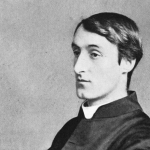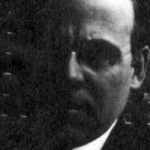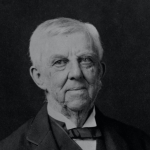We are coming, father Abraham, three hundred thousand more,
From Mississippi's winding stream, and from New England's shore;
We leave our ploughs and workshops, our wives and children dear,
With hearts too full for utterance, with but a silent tear;
We dare not look behind us, but steadfastly before:
We are coming, Father Abraham, three hundred thousand more!
If you look across the hill tops that meet the Northern sky,
Long moving lines of rising dust your vision may descry;
And now the wind, an instant, tears the cloudy vail aside,
And floats aloft our spangled flag, in glory and in pride,
And bayonets in the sunlight gleam, and bands brave music pour:
We are coming Father Abraham, three hundred thousand more!
If you look all up your valleys, where the growing harvests shine,
You may see our sturdy farmer boys, fast forming into line;
And children from their mothers' knees, are pulling at the weeds,
And learning how to reap and sow against their country's needs;
And a farewell group stands weeping at every cottage door:
We are coming, Father Abraham, three hundred thousand more!
You have called us, and we're coming, by Richmond's bloody tide
To lay us down, for freedom's sake, our brother's bones beside;
Or from foul treason's savage group to wrench the murderous blade,
And in the face of foreign foes its fragments to parade;
Six hundred thousand loyal men and true have gone before:
We are coming, Father Abraham, three hundred thousand more!




















Comment form: